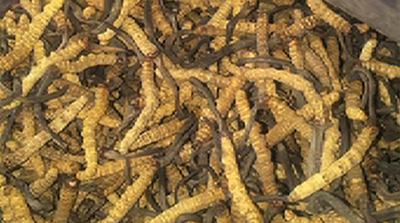 Eighteen individuals of Soe Gewog in Lingzhi could not collect cordyceps this year. The forest officials from the Jigme Dorji National Park (JDNP) claimed that these people could not fulfil criteria as per the cordyceps collection guideline.
Eighteen individuals of Soe Gewog in Lingzhi could not collect cordyceps this year. The forest officials from the Jigme Dorji National Park (JDNP) claimed that these people could not fulfil criteria as per the cordyceps collection guideline.
The officials say, according to the guideline, one should be a permanent resident of highland, should have a separate household number, and census to collect cordyceps legally.
The issue was discussed during the seventh Thimphu Dzongkhag Tshogdu which ended yesterday. The Soe Gup, Kencho Dorji said, owing to a limited landholding, the individuals could not construct houses although they belong to the community.
“Due to limited inherited lands from their parents, they could not construct houses. So in summer, they just stay in temporary camps in the gewog areas and in winter they spend their days in rented houses in places like Paro and Thimphu. Income from cordyceps is the only source of income to raise their families,” the Gup said.
 Today, there are twenty-seven registered households in Soe. And the park officials say, the eighteen individuals do not have houses and household numbers. As per the cordyceps collection guideline, collection permit is given to only three individuals from each household irrespective of number of family members.
Today, there are twenty-seven registered households in Soe. And the park officials say, the eighteen individuals do not have houses and household numbers. As per the cordyceps collection guideline, collection permit is given to only three individuals from each household irrespective of number of family members.
“There are only 27 households in Soe. But they claim they have around 50 households. Even if they own a house, they do not have household number. At present, what they do is, they keep one of their family members out of census and claim for cordyceps collection. And secondly, through records, we came to know that most of them do not stay in Soe but they come only during cordyceps collection season,” said Dagay, the Soe Park Range Officer, JDNP.
Meanwhile, there is no such issue while collecting cordyceps in Lingzhi and Naro gewogs. The house passed the resolution asking Soe Gewog administration and JDNP to work closely to solve the issue. The house expects same practices in all three gewogs since they fall under Lingzhi Dungkhag.
“From next year, it is important to attend Dungkhag coordination meeting before leaving for cordyceps collection. The issues should be discussed in the meeting. The park officials and local leaders should attend the meeting which will be chaired by the Dungpa. I am sure the issue will be solved if discussed properly during the meeting,” added Dorji Tshering, the Thimphu Dzongdag.
Ever since the cordyceps collection was legalized in 2004, it has become one of the main incomes for the highlanders. However, both the forest officials and highlanders are concerned about decreasing cordyceps production over the years.
Pema Tshewang









